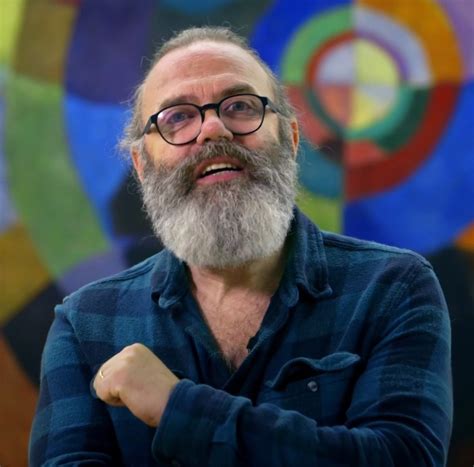A Quote by Jerry Saltz
I often find myself privately stewing about much British art, thinking that except for their tremendous gardens, that the English are not primarily visual artists, and are, in nearly unsurpassable ways, literary.
Related Quotes
You will hear people say the C-word. Except, it's a regional language: in British English, c - t has much less of an inflammatory sense than it does in North American English. You can hear someone on British TV called "a c - ting monkey" or a man being called a c - t. The particular fascination of profanity is how culturally specific it is and how it evolves.
My favorite thing is landscaping. I love landscaping. And so what I'll do is, mostly I put language into search engines, and if I want to look, like, at tulip gardens, or, like, Georgian gardens, i love English gardens, how they're laid out. Japanese gardens, Asian gardens. So, I'm kind of a frustrated landscaper.
"Facilitate my thinking" means thinking about who I am as a human being in relation to the world around me. It's how I position myself, how I navigate through this world. That to me is thinking. It is also exhausting to constantly be making art that in some ways responds to the conditions of the world around you. I gave myself permission to turn all of that off, and to lose myself in work.
I am often talking about the ideas collected in Normal Life in contexts that are not academic, or that are full of people who are not primarily engaging as theorists or theory-readers. Being able to make ideas visual, especially critical ideas about movements that can be difficult to hear because of attachments we have to certain national narratives, or because of ways that we see ourselves, is especially useful.
I think I went through early years of my career sort of thinking, "Well, maybe I'm just not British enough." And I always remember my father saying to me, "Don't think you're English, because however English you feel, some Englishman is going to remind you that you're not." Now, for him it must have been a much more acute experience, because he immigrated to England. I was born there, so I kind of felt I had the right to assume that I was British, but it's true. The English are a very warm and welcoming people, but there's a streak in there that reminds you, occasionally.
There's a limit of any form of representation; it's the same about writing about visual art. I still think it's useful for people to think through things in a deeper way, and use adjectives even if they're not sufficient, you know? I always find it interesting what terms they use to refer to the work. It's always different, and that's kind of intriguing. Sometimes it's clichés, but often it's really creative ways of paraphrasing or reformatting what to mean seems something else. I like that, personally.
An academic discipline, or any other semiotic domain, for that matter, is not primarily content, in the sense of facts and principles. It is rather primarily a lived and historically changing set of distinctive social practices. It is in these practices that 'content' is generated, debated, and transformed via certain distinctive ways of thinking, talking, valuing, acting, and, often, writing and reading.




































